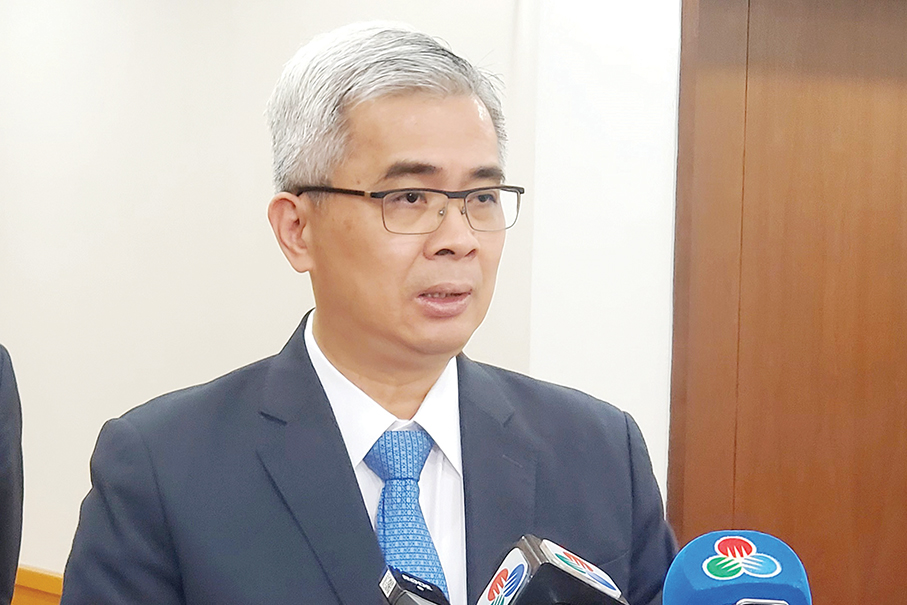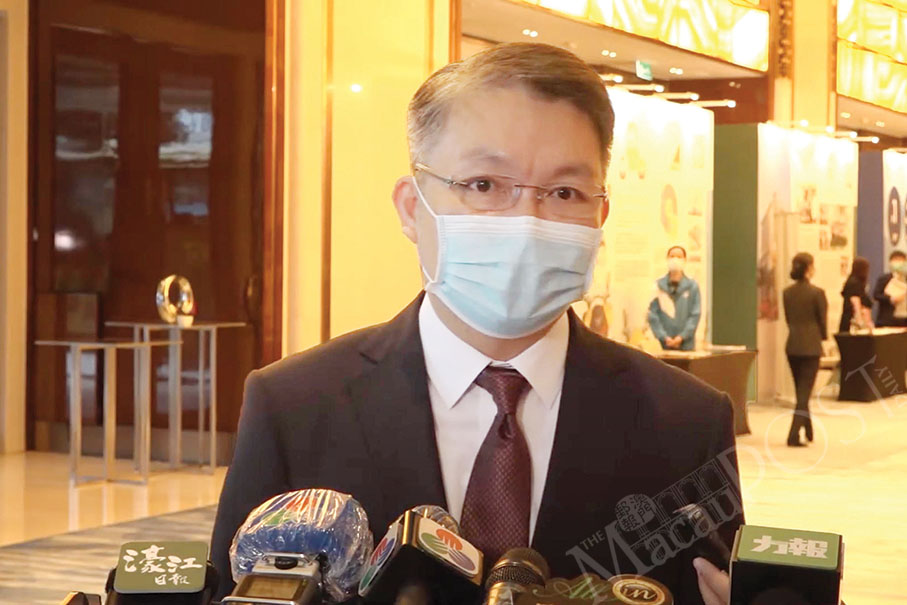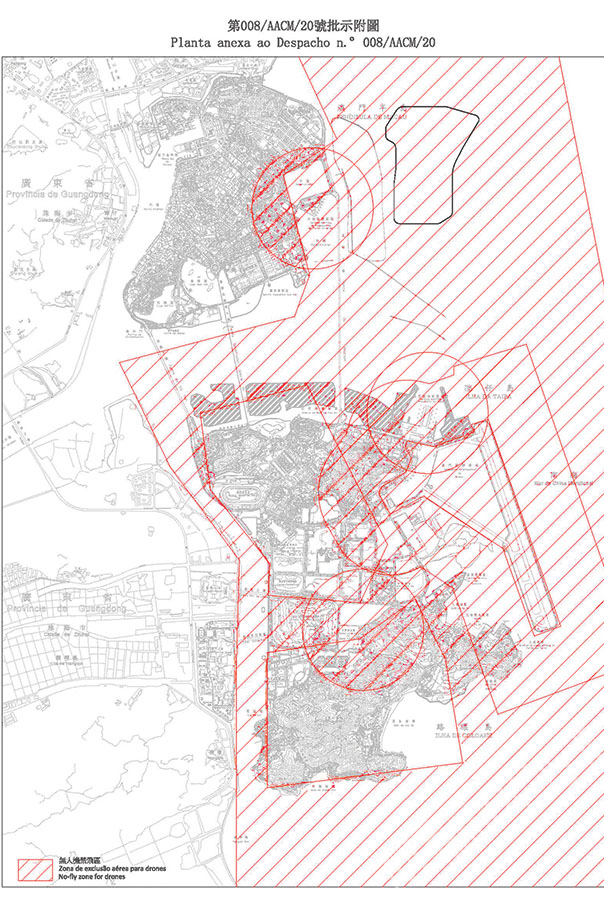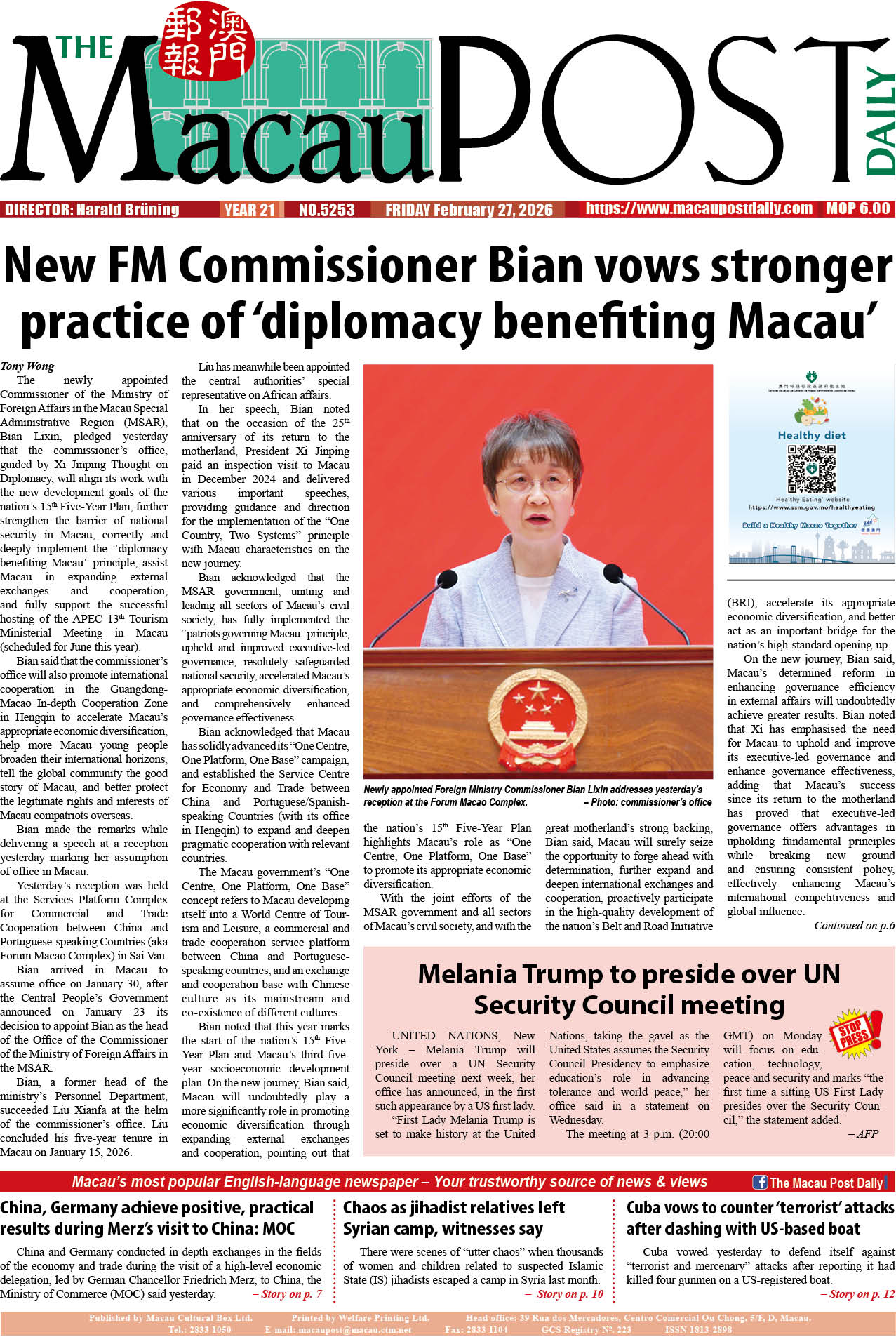Secretary for Security Wong Sio Chak reaffirmed yesterday that for the time being the government will not consider the possibility of setting-up an auxiliary police force.
Wong made the remarks while speaking to reporters after attending a closed-door committee meeting in the Legislative Assembly (AL).
Some local community leaders and lawmakers have urged the local government to study the feasibility of setting up an auxiliary police force in Macau with the aim of helping tackle the city’s shortage of police officers, in reference to the Hong Kong Auxiliary Police Force (HKAPF).
Speaking to reporters yesterday, Wong acknowledged that the current number of police officers has dropped slightly recently. He underlined that it takes time to fill vacancies in the police force as the recruitment and training of new police officers takes a relatively long time.
Wong pointed out that different to the regular police force, auxiliary police officers only have limited law enforcement powers. In addition, he said, the possible establishment of an auxiliary police force would require a new and different system concerning various aspects such as operation budgets and the duration of the training of new police officers.
Consequently, Wong said, for the time being it would not be suitable, both financially as well as in terms of the possible complexity of law enforcement arrangements, to establish an auxiliary police force in Macau.
According to the HKAPF website, the main responsibilities of Hong Kong’s auxiliary police officers are to support the regular police force in performing crowd management duties in large-scale public events, as well as to carry out patrols. In addition, they are also tasked with providing support during natural disasters or other emergencies.
Police cadets can dine out
Meanwhile, concerning the Macau Public Security Forces Academy’s (ESFSM) current measure to allow its students to dine out, Wong said that it is “impossible” for the academy to require all chefs there to work at night to prepare dinner for the students because of the academy’s limited budget for overtime payments.
Consequently, Wong said, the academy has made “flexible” arrangements that allows its students to order takeaways for their dinner or dine out, in which case they must return to the campus before 10 p.m. Wong underlined that the academy’s current 128 students must have their breakfast and lunch on the campus.
UTIP officer’s death
Meanwhile, concerning last month’s case in which a Police Tactical Intervention Unit (UTIP) officer died after a running session, Wong said that the police have preliminarily concluded that no evidence indicated that his death was caused by the training session.
The case occurred on July 10 when the UTIP officer died after a running session along a waterfront cycle path in west Cotai earlier that day. After the officer completed a 1,800-metre run there, he felt unwell, after which he and his colleagues were driven back to the unit’s headquarters near the Barrier Gate border checkpoint.
After returning to the headquarters, the officer fainted and was rushed to hospital for emergency treatment, but died later after emergency treatment to save his life had failed.
Wong said that as the victim’s family members did not agree with the body’s dissection, his exact cause of death could not be confirmed.
Permanent vehicle inspection channels at Hengqin checkpoint could open at month-end
Meanwhile, Wong also reaffirmed that the permanent vehicle inspection channels at the Hengqin joint border checkpoint could come into service at the end of this month.
Since the Macau-mainland joint checkpoint on Zhuhai’s Hengqin Island came into service in August 2020, only temporary vehicle inspection channels have been operating for vehicles crossing the border, because the construction of the permanent channels was still ongoing at that time.
The construction of the permanent channels was completed earlier this year.
Wong noted yesterday that the Macau and mainland authorities jointly started operational tests in early June for the immigration and customs clearance systems for the permanent vehicle inspection channels, adding that the tests have been carried out smoothly.
Similar to the Hengqin checkpoint’s pedestrian inspection channels, a joint Macau-mainland immigration and customs clearance system officially known as “joint inspection and one-time release” will also be adopted at its permanent vehicle inspection channels where vehicles will be required to pass border controls only once when completing their departure and arrival formalities.
Wong underlined yesterday that the operational tests were “very difficult” because of the “complexity” of the operation of the joint immigration and customs clearance system as it will be jointly used by a total of five public entities from both sides.
Wong also said that the technologies adopted by the joint immigration and customs clearance system for the permanent vehicle inspection channels were “unprecedentedly innovative”.

Secretary for Security Wong Sio Chak talks to reporters in the Legislative Assembly (AL) yesterday. – Photo: GCS








